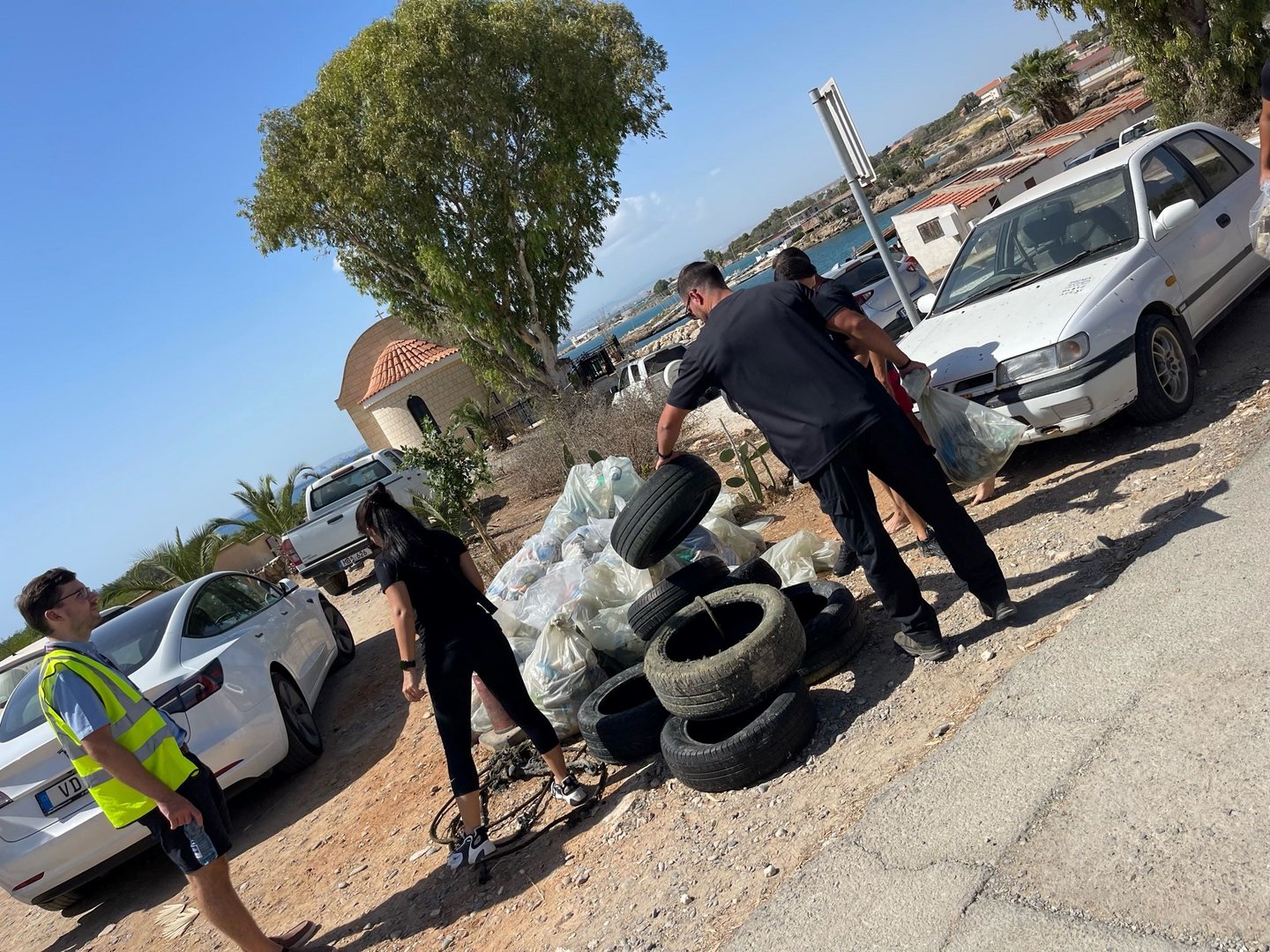SBA personnel and other volunteers, including students, collected some 295 kilogrammes of trash during a cleanup operation along a six-kilometre stretch of beach in Larnaca on Friday.
The cleanup occurred at the Xylotymbou Fishing Shelter and was organised by the British Sovereign Base Areas (SBAs) on the occasion of the European Cleanup Day.
It involved participation of the SBAs Police, soldiers, divers, members of the Non-Governmental Organisation Enalia Physis environmental research centre the Xylotymbou and Pyla Community Councils, and children from the Xylotymbou Primary School.
Divers also contributed to the cleanup effort by removing debris from the seabed.
Robin Edwards, the Head of Local Affairs for the British SBAs, mentioned that a similar event was held last year, and the volume of collected trash this year is roughly the same. However, it is essential for everyone to understand the importance of cleaning up their trash from beaches and the environment in general.
“We want to convey the message that the British SBAs Administration cares about Cyprus’ environment, and everyone should take their trash home to avoid polluting the sea and coastline,” Edwards said.
Responding to a related question, he expressed confidence that progress is being made, and people are becoming more environmentally conscious about cleanup efforts. However, there is always room for improvement.
He noted that the British SBAs Administration, in cooperation with various departments of the SBAs and the Republic of Cyprus, strives for a greener Cyprus every year.
Mario Papageorgiou, Director of the Environmental Research Centre Enalia Physis stated, “We support the British SBAs’ effort for this specific cleanup every year and are responsible for sorting and weighing the collected trash by category.”
“This year, we collected 295 kilograms of trash, including 60 kilogrammes of various plastics, including plastic bottles, 10 kilogrammes of glass bottles, 13 kilogrammes of metal cans, 73 kilogrammes of car tires, and 3 kilogrammes of paper packaging.”
When asked how the right environmental message can be conveyed, Papageorgiou responded, “It is a personal matter; each of us must be environmentally conscious and pick up our trash when we go out into nature, on the beach, and by the sea. In this way, we reduce the impact on the environment.”
Frixos Kyriakou, representing the volunteers, praised the cleanup effort, especially because it involved both the seabed and the beach.
“One can realize the value of such an action when the cleanup is completed.”
He denounced fly-tipping and said among the most common finds during clean-ups are coffee cups and coffee lids, “which are clearly items that people discard intentionally.
“Such items are not brought in by the wind or the sea,” he noted.






Click here to change your cookie preferences